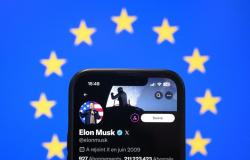New Year’s greetings are a universal ritual, but their mode of transmission has radically evolved over the decades. Formerly exchanged in the form of carefully chosen and hand-written postcards, they then migrated to telephone calls on landlines, before switching to SMS format via our mobile phones. Today, these wishes are mainly transmitted by instant messaging applications like WhatsApp, sometimes enriched with videos generated by artificial intelligence (AI), sometimes even including personalized messages from Santa Claus for children! This evolution, although technological in appearance, is also a reflection of the deeper transformations of our societies. What do these changes say about human connections, the digital economy, and the growing place of algorithms in our lives?
The end of an era – from postcards to text messages
The postcard, once an essential symbol of end-of-year greetings, has seen its use collapse. In France, the number of postcards sent has increased from several hundred million to around 330 million per year in 2023, or an average of 7 cards per inhabitant, compared to 54 in the United Kingdom. This sudden decline had notable economic repercussions: La Poste saw this activity, once essential, become marginal in its revenues. The company Cart’Image, a historic player in the sector, saw postcards represent less than 10% of its turnover, compared to 60% at the start of the 2000s.
SMS also experienced a spectacular rise before being supplanted by instant messaging. In 2012, more than 20 billion text messages were sent around the world every day. But from 2018, this trend was reversed with a regular decline, to the benefit of applications like WhatsApp, Telegram and others. In France, according to Arcep, the use of SMS fell by 10% in 2023 compared to the previous year. This decline represents a significant loss for telephone operators, for whom SMS constituted a stable source of income.
These transitions illustrate a simple but unavoidable observation: digital technology is crushing everything in its path, including employment, and traditional economic models are disappearing or adapting under its pressure.
The rise of platforms and the mirage of free
With the domination of instant messaging, the landscape of New Year greetings has undergone a profound transformation. WhatsApp, owned by Meta, now has more than 2 billion users worldwide. If the application presents itself as free, its income essentially comes from the exploitation of users’ personal data. According to a study by Business of Apps, Meta generated $116 billion in 2022, including $113 billion (or 97.5% of its revenue) from targeted advertising.
The idea of gratuity is therefore a carefully maintained illusion. Every message sent, every photo shared, every wish exchanged is a gold mine of information for the platforms. This data not only allows us to better understand user habits, but also to predict their behavior. Through this invisible monetization, consumers themselves become the product.
However, this strategy is not without criticism. Recently, LinkedIn was fined €310 million by Ireland for violating the General Data Protection Regulation (GDPR). This decision highlights a fundamental paradox: our personal messages, which we believe to be innocuous or intimate, are in reality data exploited for commercial purposes.
AI and the worrying prospects of “commercial Big Brother”
Artificial intelligence is ushering in a new era in the business of New Year greetings. Today, applications allow you to generate personalized greeting videos, with almost professional quality, in a few seconds. But AI doesn’t just improve the appearance of our messages: it transforms their very essence.
By analyzing shared content, platforms can detect global trends in real time. For example, exchanges of greetings become a basis for assessing consumer morale, identifying their aspirations, or even forecasting major trends in sectors such as fashion, electronics or automobiles.
Even more worrying, this massive collection of data is no longer just used to track consumption habits. It is now moving towards active manipulation of trends. Algorithms, once observers, become prescribers. They suggest, incite and influence behavior, creating a form of dependence on recommendations.
This shift towards a “commercial Big Brother” poses major ethical questions. Each individual, followed, tracked and noted, becomes a moving target in a market where supply precedes demand. This intrusion, although invisible, risks profoundly redefining the very notion of free will. Today, this is mainly used for commercial purposes, but what will happen when our data is used to define and manage public policies? How can we ensure, for example, fairness of care if it depends on our digital “score” and requests made on the networks? Will we be penalized because we have consulted sites selling electronic cigarettes, for example?
A hybrid future between technology and humanity
Faced with these developments, a counter-movement seems to be emerging. More and more consumers are expressing digital fed up and looking for ways to disconnect. This need for disconnection opens up a promising market: that of digital silence.
Products like the minimalist “Light Phone”, which only allows essential calls and text messages, are enjoying growing success. Disconnected retreats, where participants leave their devices behind for a few days, are also booming. This disconnection market, although emerging, reflects a collective awareness of the harmful effects of digital technology on well-being.
Thus, if the business of New Year’s greetings illustrates the technological and economic changes of our time, it also shows that humans, in their quest for authenticity and meaning, can never be completely supplanted by the machine. The challenge for the future will be to find a balance between technological innovation and preservation of human connections, so that progress truly serves the collective interest.
Ultimately, the greeting business is just a mirror of our society: constantly evolving, but always guided by deep aspirations to connect – truly – with others.
Also read: Lifestyle – the “Dubai beach” style, a promising business






